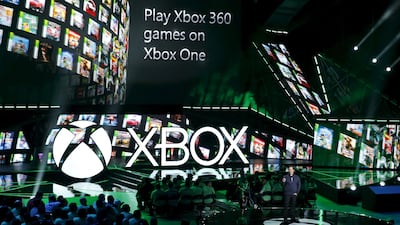Now the dust has settled on showcase season, most recently with Ubisoft Forward, it seems pertinent to reflect on the first year without E3.
The Electronics Entertainment Expo, more commonly known as E3, was a yearly gaming convention held in Los Angeles. From 1995 onwards, every year the exhibition created a space where video game companies, developers and publishers could come and show what they’d been working on.
Until 2017, the event wasn't open to the public – with only those in the industry and press attending, the purpose of the event was to announce and build hype around new games, consoles and innovations.
However, even for gaming fans, the conference was the focal point of the year – a time when they could look forward to seeing announcements and trailers of the newest video games.

In recent years though, the convention has waned, with gaming companies choosing to host their own showcases instead. Recently, The National covered the PlayStation showcase – its first in two years, where Sony made several major announcements, including a new portable console that links to the PlayStation 5.
Following the pandemic, the decision by an increasing number of companies to pull out of E3 has seemingly forced the convention to cancel altogether this year, putting a formal end to its 28-year run.
Does the decision make sense? Unfortunately, it does.
With the pandemic impacting travel and logistics, video game companies had to push their presentations to online platforms. The number of viewers and interest gained from these presentations meant that companies did not need to spend the time and money going to a conference once a year to have all the attention on them when they could instead decide for themselves when and how to make these announcements.
In the past, publishers might rush a presentation or a release date to coincide with E3, meaning teams working on these games had to sometimes deliver products that weren't ready.

With development cycles growing by the year, the reduced pressure of staging their own events makes it much easier for companies to plan their timelines.
From a gaming fan standpoint, however, there are positives and negatives to the new system.
For one, instead of having to binge-watch one event, gamers can now enjoy the showcases from every company at a more leisurely pace. In the past three weeks, there have been showcases from PlayStation, Xbox and Ubisoft, plus the new Summer Game Fest. Four separate presentations allow room for more nuance in each.
Yet, while this streamlined approach does seem to work, we are missing something crucial. When E3 was on every year, it grabbed the focus and attention of every gamer across the board. There was a collective excitement. It wasn't just an event, it was a talking point – with a sense of weight and ceremony. What happens now is that fans of each specific company watch their own respective showcases and ignore the rest.
There have been some unforgettable moments from E3 over the years. Having the companies make announcements one after the other meant they could adjust their strategies based on their opponents’ stances.
I can remember the presentations at E3 in 2013 when Microsoft announced their brand new Xbox One console. One controversial feature announced during the presentation was that game discs would be imprinted on one console only, meaning they could not be sold after use.
This announcement drew the ire of gamers, and Sony decided to make full use of the growing negative sentiment.
During the PlayStation 4 announcement, the presenter emphasised that used games could be played on the console, with no restrictions. The reaction from the audience was loud applause and cheering.
Another thing we’re missing in the absence of E3 is the cringe moments. These became a yearly staple among fans; looking forward to seeing which ridiculous attempt at being cool or edgy would evolve into a meme. From the excitable "Doodly doodly doops" of Ubisoft's host Aaron "Mr Caffeine" Priceman to Konami's toe-curlingly awkward 2010 press conference, the event spawned some truly memorable moments.
There’s a lot to enjoy and look forward to from the videogame showcases, and I’ll continue to be excited by announcements of games I can’t wait to play. It will never be the same without E3, though.


